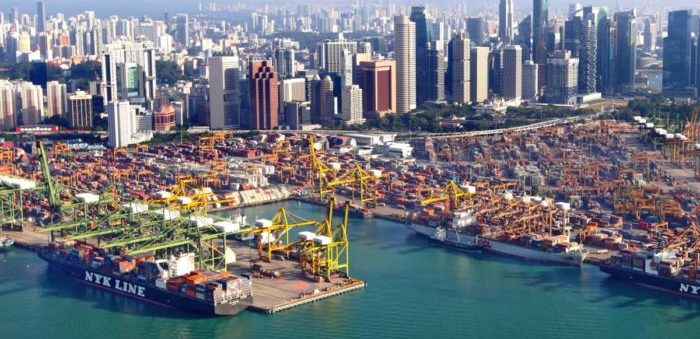MPA Singapore issued an update on the Antigen Rapid Test (ART) requirements for shore-based personnel boarding vessels arriving in Port of Singapore from countries with a sustained increase in COVID-19 cases: Bangaldesh, India, Pakistan, and Sri Lanka.
The new Port Marine Circular No. 24 of 2021 supersedes No. 20 of 2021 and updates the ART and must be read together with Port Marine Circular 21 of 2021 ‘Requirements for Vessels arriving in Port of Singapore during COVID-19‘.
Firstly, owners, masters and agents of vessels arriving in the Port of Singapore must ensure that all operations are carried out contactless or contactless with segregation protocol.
In addition, for vessels arriving in the Port of Singapore within 21 days from any of the four countries and require shore-based personnel at any time to board and conduct activities, the following must be done:
-Master of the vessel must declare via here
- Crew members, including the master, did not have shore leave and physical interaction with any individual other than their own crew when calling at any port in a country of the aforementioned.
- The vessel did not sign on any new crew in the last 21 days.
[smlsubform prepend=”GET THE SAFETY4SEA IN YOUR INBOX!” showname=false emailtxt=”” emailholder=”Enter your email address” showsubmit=true submittxt=”Submit” jsthanks=false thankyou=”Thank you for subscribing to our mailing list”]
Where shore-based personnel are required to board the vessel, the shore-based personnel must be on a 7-day Rostered Routine Testing (RRT) programme. In addition, the shore-based personnel are required to take an Antigen Rapid Test (ART) on the third (3rd) or fourth (4th) day of the 7-day RRT cycle. The ART may be taken at any of the MOH-approved COVID-19 test providers. The owner, agent, or master of vessel is not required to submit the details of the shore-based personnel boarding the vessel.
Vessels entering shipyards under the Ship Repair Framework must comply with the Economic Development Board and Enterprise Singapore’s Heightened Mandatory Precautionary Measures.






























































